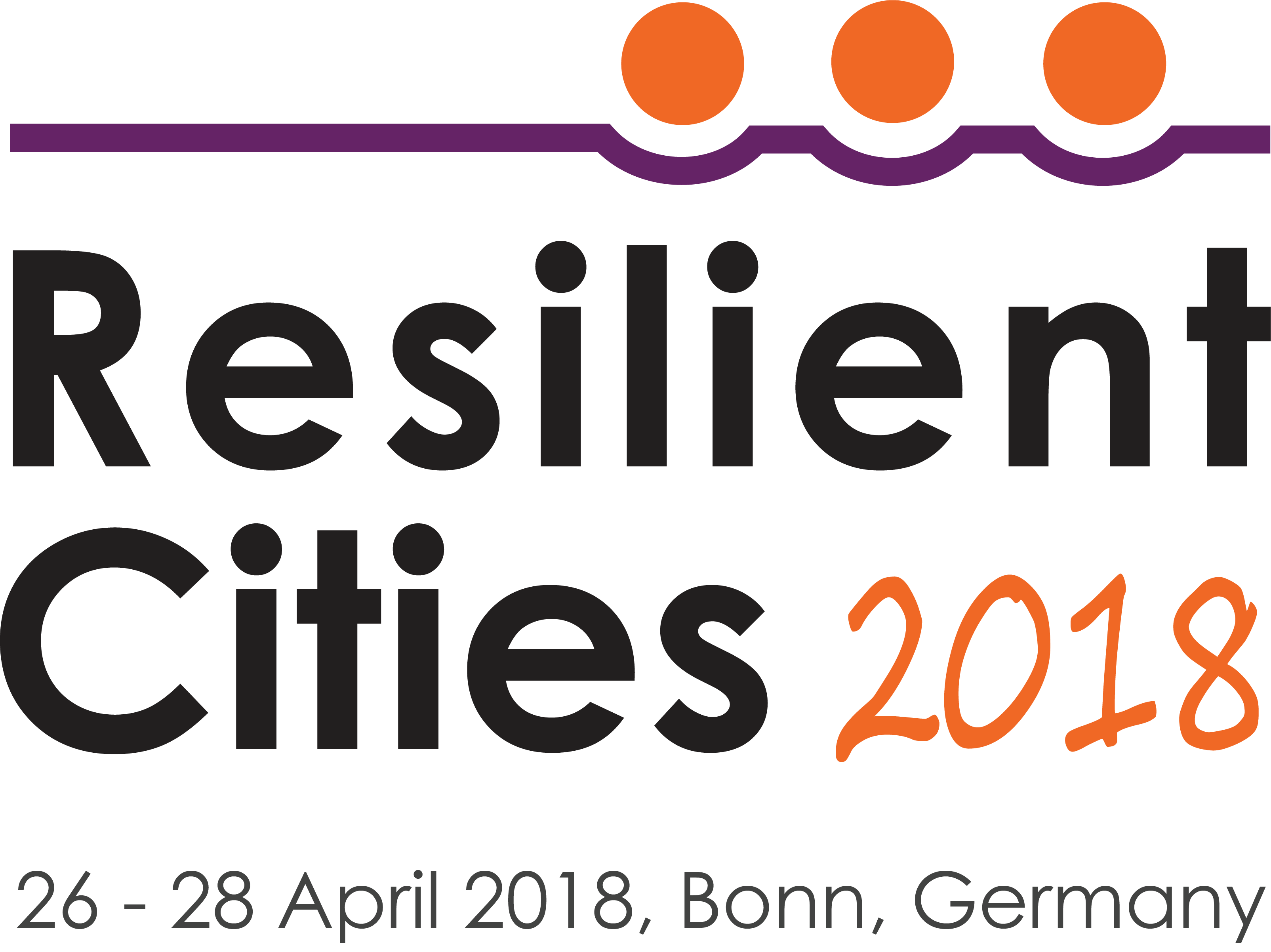Science & Resilience
New data and developments in climate science:
From High-tech spatial data to community-sourced data
Sessions focusing on these discussions:
B5 – “Earth observations for climate-resilient cities“ hosted by Resilience Brokers & Group on Earth Observations (GEO)
F3 – “The new ISO standard for resilient cities indicators: opportunities for city and expert input“ hosted by the World Council on City Data (WCCD)
H4 – “Slum dwellers count: knowledge, data and action shaping inclusive urban resilience investments” hosted by the Resilience Measurement, Evidence and Learning Community of Practice (CoP) with Global Infrastructure Basel Foundation (GIB) and Slum Dwellers International (SDI)
Earth observations for climate-resilient cities
The use of earth observations (“EO”) and geospatial data and their effective integration with other development- and civic-related information sources can produce a quantum leap in tracking progress towards and achieving the Global Goals and Sendai Framework outcomes while allowing policy and planning decision makers and communities to more effectively implement climate-informed resilience measures through data modeling and communications tools, collaboration and knowledge sharing.
From a range of practitioners’ perspectives, this session will introduce current and emerging case studies, joint EO-support programmes and initiatives, and open source platforms across thematic topics and contexts that demonstrate the profound value of EO/remote sensing data, when combined with federated-database approaches and integrated decision and communications support tools, in advancing more resilient development pathways in city-regions.
The new ISO standard for resilient cities indicators: opportunities for city and expert input
In response to demand from cities and other stakeholders, the development has begun within ISO of a complementary standard on Indicators for Resilient Cities (ISO 37123). The availability of ISO standardized metrics for resilience will assist local governments to determine their exposure to and capacity to cope with potential hazards, extreme events or stresses while maintaining their essential functions and safeguarding their population. Local governments need reliable, comparable data to set targets and measure their performance particularly when developing a comprehensive and effective response to the challenges of managing complex risks and enhancing resilience. Standardized metrics allow municipal leaders to measure and benchmark their performance and learn from other comparable cities.
Slum dwellers count: knowledge, data and action shaping inclusive urban resilience investments
Asking the Question: How are innovative partnerships shaping urban resilience planning and partnerships?
Presenting data, tools and standards that can be applied by city development stakeholders.
The panelists will present how communities in the Slum Dweller International (SDI) network are collaborating with cities and international climate and resilience experts to bring Know Your City slum-dweller generated data into urban resilience planning processes. You will learn how SDI and Global Infrastructure Basel (GIB) are working to influence public and private sector investments in sustainable infrastructure in Durban, by applying KYC data to existing infrastructure investment certification tools through the Standard for Sustainable and Resilient Infrastructure (SuRe®) Smartscan.
